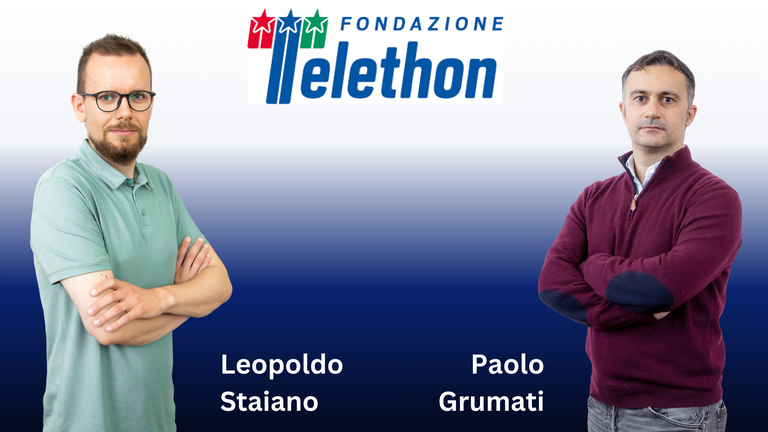Leopoldo Staiano and Paolo Grumati Awarded Two Seed Grants

The innovative research endeavors of Leopoldo Staiano and Paolo Grumati have been recognized with the prestigious Seed Grants by the Telethon Foundation. These grants, which symbolize the potential and promise of scientific research, are designed to support groundbreaking projects that aim to uncover new insights into rare genetic diseases.
Seed Grant Initiative
The Seed Grant initiative, an emblematic project by the Telethon Foundation, aligns closely with the foundations' mission to support patient associations in their efforts to fund research into their specific rare genetic conditions. This initiative leverages the extensive expertise of Telethon in evaluating and monitoring scientific research projects, thus ensuring that patient associations can invest their collected funds in the most impactful and promising research.
Project by Leopoldo Staiano: Investigating TFEB in Tuberous Sclerosis
Abstract:
Tuberous sclerosis complex (TSC) is a genetic disorder characterized by the growth of benign tumors in multiple organs, including the kidneys. Kidney complications in TSC are a significant cause of mortality. Recent studies suggest that the Transcription Factor EB (TFEB) plays a crucial role in the kidney pathology associated with TSC. However, current kidney organoid models do not fully replicate the human disease's complexity, particularly the scattered lesions and cysts resulting from second-hit mutations in the TSC genes.
Research Objectives:
Staiano's project aims to fill these gaps by developing novel TSC kidney organoid models that more closely resemble the human pathology. These models will enable the study of the progression of TSC-related kidney disease over time, focusing on the role of TFEB in kidney cystogenesis and tumorigenesis. The ultimate goal is to evaluate TFEB as a potential therapeutic target for TSC-related kidney pathology.
Project by Paolo Grumati: Understanding GLUT1 Deficiency
Abstract:
GLUT1 deficiency syndrome, caused by mutations in the SLC2A1 gene, leads to a metabolic disorder where the transport of glucose across the blood-brain barrier is impaired. The ketogenic diet is currently the standard treatment, but there are no effective pharmacological therapies. The lack of alternative treatments stems from an incomplete understanding of GLUT1's biochemical functions and the mechanisms regulating its activity.
Research Objectives:
Grumati's project aims to elucidate the function and membrane localization of GLUT1. The study will investigate whether aberrant GLUT1 proteins affect the functionality of normal GLUT1 proteins and explore biological pathways that might compensate for GLUT1 deficiency. Utilizing drugs already approved for other conditions, this research seeks to identify new therapeutic strategies for GLUT1 deficiency, potentially repurposing existing medications to treat this disorder.
Conclusion
Both projects exemplify the spirit of the Seed Grant initiative, which strives to plant the seeds of innovative research with the hope of fostering significant scientific advancements. The Telethon Foundation is proud to support Staiano and Grumati as they embark on their respective journeys to uncover new treatments and insights into these challenging rare genetic diseases.
For further information or to support these projects, please contact the Telethon Foundation.
